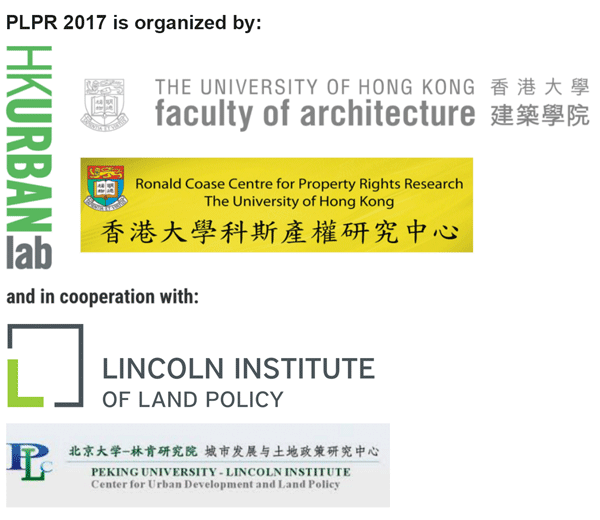
The role of law in planning: from devil to angel
Time: February 22, 2017 – morning | at HKU
Planning and law are reluctant bedfellows, trained in very different disciplines. Since the Industrial Revolution, planning and law have evolved together, but not always in tandem. There is an inherent imbalance between the two. The ancient and highly institutionalized discipline of law can survive well without planning, but in order to implement plans and achieve change, planning needs legal instruments. Yet, planning theory has almost ignored the role of law in planning. In order to boost good planning across the globe, planners must become more knowledgeable about the roles played by law. This has been the mission of PLPR, established exactly 10 years ago.
Planning laws and real property rights – unlike some other fields of law – are largely domestic, inwards-looking, and differ significantly from country to country. But regardless of their differences, they harbor a paradox. Laws and regulations can serve as the angels that provide planning with instruments to achieve just and inclusive cities and regions. But they can also be the devils that enable adoption of plans that promote social exclusion, unequal distribution of public services, or exposure of the poor to environmental hazards. On the procedural level, the law can help the disempowered challenge bad plans, but in reality, legal procedures often favor the rich. Of course, in real life, the roles of laws are not black or white. The ways they are perceived vary over time and across countries.
I will argue that planning education and research should seek to empower planners to play a more active role in the legal arena. Due to the relative insularity of planning laws in each country, legal norms with negative effects may be regarded as an unchangeable part of the system. Planners, as well as civil society actors, are often discouraged from challenging the current legal norms under the assumption that the law is a “given”.
Comparative research on planning law can help to break this lock. In this talk, I will draw on examples of my research in several fields of planning law and will demonstrate how widely they vary across countries. Planners’ knowledge about the wide spans of alternative legal instruments and approaches, shared with legislators, can help reassessment of domestic laws and practices. By improving our ability to distinguish better between angels and devils, we can create better synergy between planning and law.
About the speaker
Dr. Rachelle Alterman is a full professor who holds the David Azrieli Chair in Town Planning at the Technion (“Israel’s MIT”). Holding degrees in planning and in law from Canadian and Israeli universities, Alterman specializes in cross-national comparative planning law, land use regulation and property rights. Many of her 170 academic publications are in these areas, as well as in planning theory, implementation, and public participation.
Professor Alterman is the Founding President of the International Academic Association on Planning, Law and Property Rights. She serves or has served on the Editorial Advisory Boards of the Journal of the American Planning Association, Journal of Planning Education and Research, Town Planning Review, Planning Theory and Practice, and International Journal of Law in the Built Environment. Alterman has been invited as a visiting professor in leading planning schools in The USA, The Netherlands, and Japan, as well as in two American law schools.
Rachelle Alterman’s most recent book is Takings International: A Comparative Perspective on Land Use Regulations and Compensation Rights. Among Alterman’s previous books are National-Level Planning in Democratic Countries, Neighborhood Regeneration: an International Evaluation, Private Supply of Public Services.
In Israel, Professor Alterman is regarded as the leading academic in planning as indicated by the prestigious Landau National Academic Prize that she was awarded in 2009. She is also active in shaping public policy, serving as the academic member of the statutory National Planning and Building Board and a frequent pro bono advisor to the Knesset (parliament), various government agencies and NGOs. Her publications are frequently cited by the Israel Supreme Court. Dr. Alterman has also served as a consultant to the World Bank and the UN on cross-national transfers of “best practices” in planning law, land policy, and housing.




